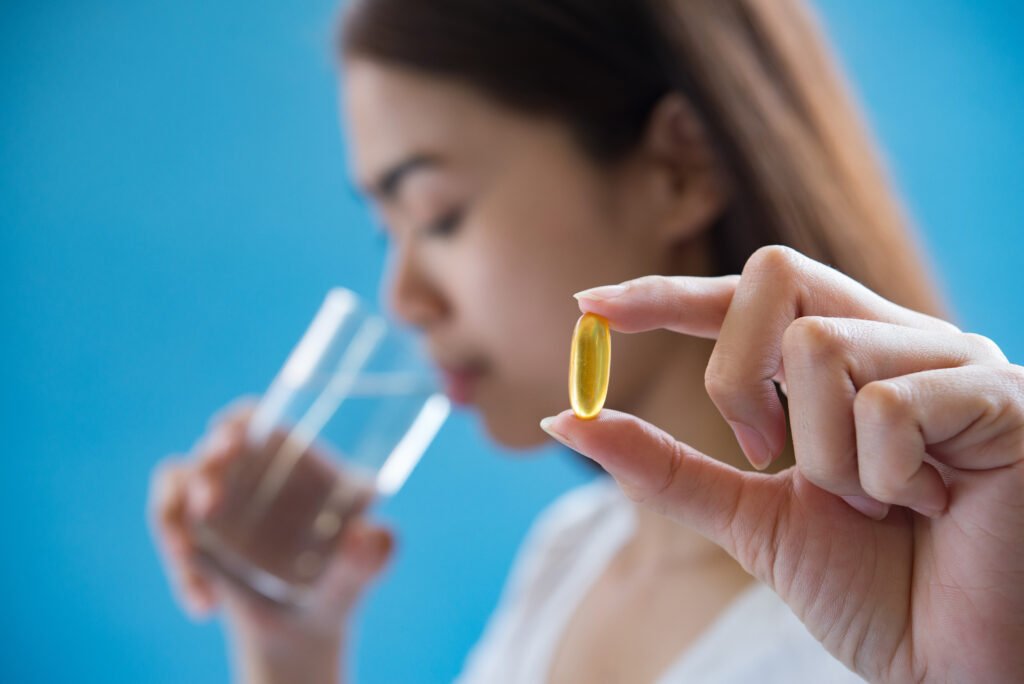Vitamin D helps your body absorb calcium for strong bones and teeth, and supports your immune system to keep you healthy. It’s essential for overall health.

Why Vitamin D3 Matters for People with Autoimmune Conditions
If you live with an autoimmune disease—like lupus, rheumatoid arthritis, Hashimoto’s, or EGPA (Eosinophilic Granulomatosis with Polyangiitis)—you’ve probably heard about the importance of Vitamin D3. But what does it really do, and why is it especially important for people with autoimmune disorders?
Let’s break it down.
What Is Vitamin D3?
Vitamin D3, also known as cholecalciferol, is the form of vitamin D that your body naturally produces when your skin is exposed to sunlight. It plays a crucial role in many bodily functions, especially in maintaining bone health, immune support, and mood regulation.
Vitamin D3 and the Immune System
One of the most important roles of Vitamin D3 is modulating the immune system. In autoimmune diseases, the immune system mistakenly attacks healthy tissues. Vitamin D3 may help calm down overactive immune responses while still allowing your body to fight infections.
Research has shown that people with autoimmune conditions often have low levels of Vitamin D3, and maintaining healthy levels may help:
- Reduce inflammation
- Support T-cell regulation (which helps prevent immune overreaction)
- Lower the risk of flare-ups in some autoimmune diseases
- Improve the effectiveness of certain treatments
Common Signs of Vitamin D3 Deficiency in Autoimmune Patients
Because autoimmune diseases can affect absorption, inflammation, and even kidney function, a vitamin D3 deficiency can go unnoticed or be mistaken for disease symptoms. Watch for:
- Chronic fatigue
- Joint or muscle pain
- Frequent infections
- Mood changes or depression
- Poor wound healing
- Flare-ups or worsening of autoimmune symptoms
Best Ways to Get Vitamin D3
- Sunlight: Natural and effective, but may not be enough year-round or for people with darker skin, who live in northern climates, or avoid sun due to lupus/photosensitivity.
- Supplements: Look for Vitamin D3 (cholecalciferol) rather than D2. Liquid or softgel forms may be better absorbed.
- Food sources: Fatty fish (like salmon or sardines), egg yolks, fortified plant milks, and liver.
Some autoimmune patients may also benefit from Vitamin K2 taken with D3 to help direct calcium to the bones and away from arteries.
Can Too Much Vitamin D3 Be Harmful?
Yes. Always check with your healthcare provider before starting high doses. Taking too much can lead to vitamin D toxicity, with symptoms like:
- Nausea
- Weakness
- Confusion
- Kidney damage
A personalized plan based on your lab tests is the safest route.
Final Thoughts
Vitamin D3 is not a cure, but for many people living with autoimmune diseases, it can be a powerful ally. Supporting your immune system from the inside out may help reduce inflammation, prevent flares, and improve quality of life.
If you haven’t checked your vitamin D3 levels recently, ask your doctor. It’s a small test that can make a big difference.
- HIGHEST POTENCY/HELPS MAINTAIN STRONG BONES*: Vitamin D is normally obtained from the diet or produced by the skin from …
- SUNSHINE VITAMIN/SUPPORTS IMMUNE SYSTEM*: As more people avoid sun exposure, vitamin D supplementation becomes even more…
- GMP Quality Assured: NPA A-rated GMP certification means that every aspect of the NOW manufacturing process has been exa…

